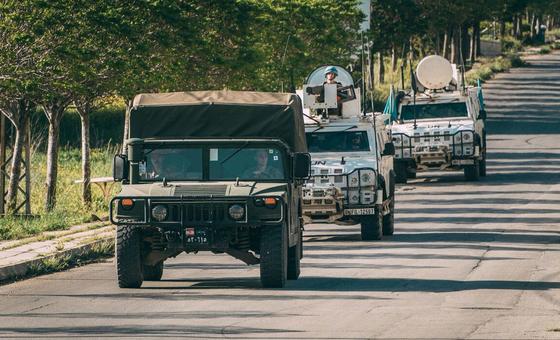Peacekeeping: A Lifeline for Millions Seeking a Future Without Fear
International affairs correspondent with extensive experience covering global politics, diplomacy, and cross-border issues

In a world increasingly burdened by conflict, the United Nations' peacekeeping operations stand as a beacon of hope for millions. As the Security Council convenes to discuss the evolution of these missions, the stakes have never been higher. With over 60 active conflicts worldwide, the demand for effective peace operations is urgent.
Peacekeeping has long been a central pillar of the United Nations' efforts to maintain global stability. Currently, more than 60,000 personnel from 115 countries are deployed across 11 missions worldwide. These operations are not just about maintaining peace; they are a critical support system for those who envision a future without fear. Jean-Pierre Lacroix, the UN Under-Secretary-General for Peace Operations, emphasizes that peacekeeping is essential, especially as conflicts become more complex and protracted. With 61 active conflicts reported last year, the need for adaptable and responsive peace operations is more pronounced than ever.
The future of peacekeeping requires agility and innovation. Mr. Lacroix stresses the importance of missions being tailored to the specific needs of the regions they serve, guided by strong political strategies. The incorporation of digital technologies and artificial intelligence to analyze data and enhance response effectiveness is also crucial. Political solutions must remain at the forefront, alongside efforts to protect civilians and promote human rights. The advancement of the women, peace, and security agenda, as well as adherence to the UN's zero-tolerance policy on sexual exploitation and abuse, are imperative.
Political support is the linchpin for successful peacekeeping. As Mr. Lacroix points out, peacekeeping should not be indefinite. Achieving sustainable political solutions that allow for the withdrawal of peacekeeping forces without a resurgence of conflict is vital. This requires unwavering support from the Security Council, clear mandates, and timely financial contributions from member states. Rosemary DiCarlo, UN Under-Secretary-General for Political and Peacebuilding Affairs, notes the increasing internationalization of conflicts, with non-state actors employing terrorist tactics and utilizing new technologies like AI and drones on an unprecedented scale.
The changing landscape of conflict demands a reevaluation of UN missions. Ms. DiCarlo's office has identified three priorities for future operations: setting realistic initial goals, enhancing coordination between peace operations and UN country teams, and moving away from a one-size-fits-all approach to mandates. Many missions are deployed without comprehensive peace agreements in place, often in volatile political climates. Focusing on preventing violence escalation, achieving ceasefires, or supporting fragile peace processes are seen as more feasible initial objectives.
Ultimately, the success of UN peace operations hinges on addressing the political dynamics at the heart of each conflict. Ms. DiCarlo highlights the need for multilateral responses and a concentrated effort to refocus on political solutions. The failure to implement mandates effectively often stems from insufficient political backing, whether from the host countries, regional actors, or Security Council members. Ensuring that peacekeeping remains a viable tool for conflict resolution requires a concerted global effort to align political will with operational capabilities.
About Alex Rivera
International affairs correspondent with extensive experience covering global politics, diplomacy, and cross-border issues